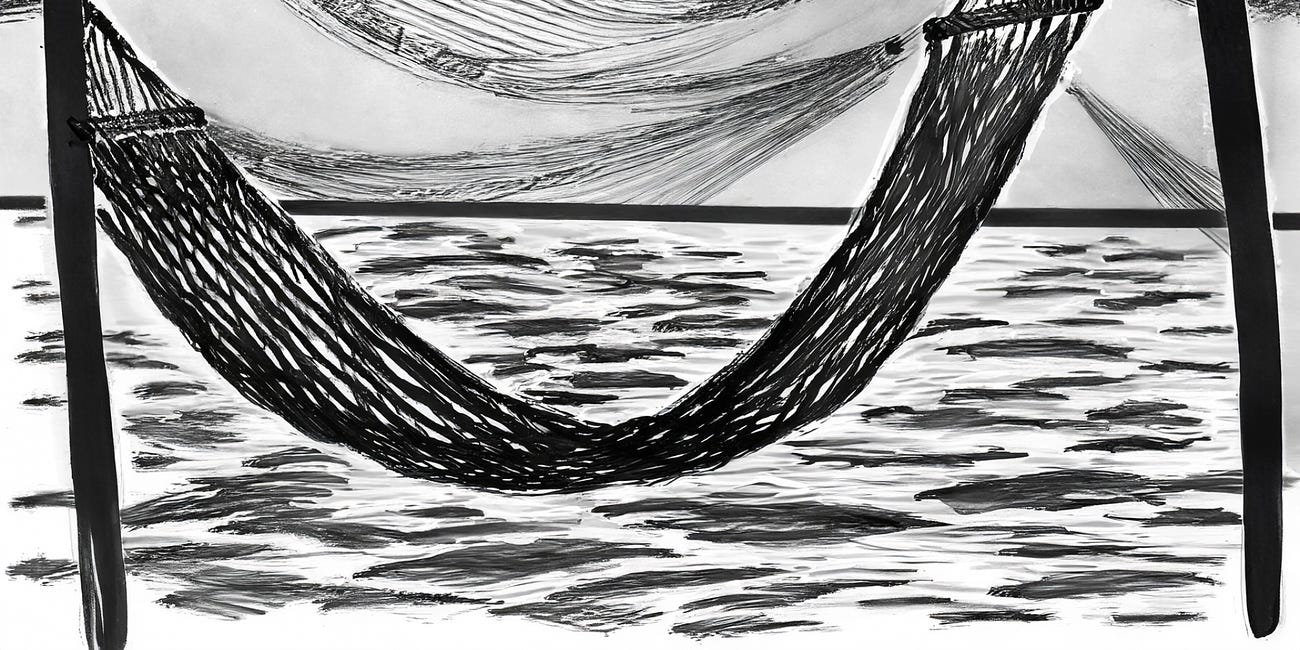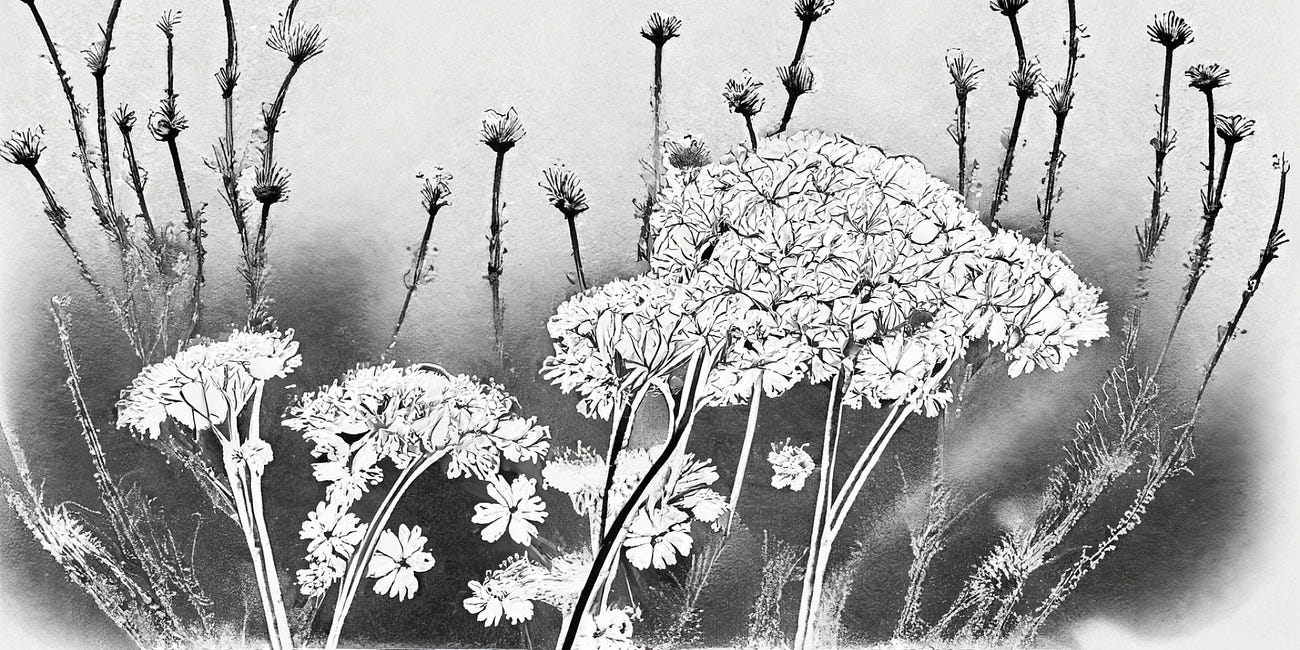Ever since he was a kid, Ernie knew he wanted to be the last mail carrier.
He of course foresaw the extinction of mail carrying as a profession, a fate apparent to anyone from his generation, even in the naivety of youth. Carriers were already being replaced by flashes of light through trans-continental cables. A time would soon come when the job of a muscle-and-bone mail carrier was obsolete, replaced by entomoid drones whisking mail and packages from warehouse to door, rolling automatons with strong robotic arms delivering the heavy parcels, and self-driving trucks navigating neighborhoods with care for dog-walkers and bike-riders.
Ernie, however, hoped he could persist through these changes. He was a mail carrier before he was anything else. Watching his single mother juggle school and multiple jobs, little Ernie felt helpless as he struggled with washing dishes or loading the top-loading washer, too short to reach either. His mother asked the mailman to leave the mail on the bottom steps of the porch of their multi-family home. Their entrance had a door with a little mail-slot, so every day he would march down the steps, collect the mail, and pop it in the reachable slot, to his mother’s thankful cheers.
Ernie's hopes and dreams went through many permutations, as the hopes and dreams of young men often do, but he knew they would all lead him to the stately uniforms that came in so many shades of blue. The mailman who left the letters for him as a boy became his stepdad, and through him he got in with the Postal Service as a City Letter Carrier with the National Association of Letter Carriers Union.
It was everything Ernie hoped it would be, though not without its stressors. Through rain, sleet, and snow it was challenging, but in the elements, he felt a connection to the Earth that perhaps not many felt. For others, the weather either mattered or it didn’t; they could stay inside and watch it if they wanted. Ernie had to be one with it, no matter what, no matter how hazy or smoky the air had gotten from the fires, from the ozone. And although the job wore his body down, getting out of shape was never a question, not since the Delivery Operations Information System drove them to increasingly unrealistic standards.
The other carriers would sometimes wear ear buds or play music, though it wasn’t always allowed. Ernie never did. Sometimes he would regret the podcasts he must have missed out on, the albums he never heard, the audiobooks with their knowledge he did not digest, and wondered if he could have better spent those hours on the route.
But he came to learn that there was something just as valuable in the silence as well, the way his thoughts would unbind themselves from nothingness and weave their way into narratives. The catalysts for many of these thoughts were the homes he delivered to. He gave each of them a name: The One With The Bad Lawn, The House With Too Many Kids, The Doberman-Rottweiler House, The Big One With Black Shutters. He told his wife about these houses and the stories he thought they must contain, reading between the lines of names on mailings and for-sale signs and car models and landscaping changes and fights heard raging inside. They’d sit on the back porch, and he’d tell her: “Yeah, The Brick One With The Big Yellow Door. I think a single mom just moved in there. Saw a kid but no daddy around. Nice place though, not like me and my momma’s.”
Eventually, the changes to the postal system arrived. Even the Delivery Operations Information System was replaced by an artificial intelligence that saw houses not for the people that lived there but as dots on a map to be prioritized. The union dissolved, powerless as so many other unions became in that time. He, like everyone else, was offered special dispensations by the government to retire early, to collect a larger monthly pension, and become a professional consumer.
This did not suit Ernie, and so he continued to deliver, along with a few other mail carriers around the country. They took away the mail truck once it became illegal for humans to drive, and Ernie was grateful for that; driving was always his least favorite part of the job. That was the final nail for many carriers, but not for Ernie. He liked to walk.
There was a YouTube documentary about him that went viral, one which had dubbed him, officially: ‘The Last Mail Carrier.’ Afterwards, his bags were inundated with letters sent to houses along his route, from people on the Internet who thought they were doing him a service in giving him more to do. The people living on his streets complained, and soon, like most things that go viral, the public became inoculated to his story, and the deluge of random letters slowed.
The amount of mail available for him to deliver continued to dwindle as people came to expect even their Christmas cards, wedding invitations, and other persistently physical mail items to be delivered instantaneously by drones. Ernie carried on regardless. He became a public figure, greeted by strangers yelling hello and waving to him from their self-driving car windows. The Postmaster General gave him a commendation at a publicity event, making him the human face of an enterprise that had become human-less. Near the end of his career, there were only ever a handful of letters; his route, made smaller and smaller to accommodate his aging legs, could be completed in only an hour. It had become a ceremony, not a job.
There was only one house that still consistently received letters in his mailbag: The Brick One With The Yellow Door. The envelopes had no name on the return address, just a P.O. box. The mother living there had requested via a note on the door that he put the mail at the bottom of the porch stairs, just as his stepdad had done for him. He did so every day, sometimes sticking around to watch the toddler descend the steps, then back up to deposit the mail in the slot and give him a big thumbs up.
When he told his wife this, she smiled and asked him when he would retire, if he ever would. “When they stop giving me letters to deliver, when they no longer need me, then I’ll stop,” he told her. His knees ached, but he was convinced the job was keeping him young and healthy.
What was keeping his wife young, he did not know, but she seemed to retire from it and became unhealthy. Ernie missed an entire week of mail carrying to be with his wife in hospice. Besides time off, Ernie had only missed two days of work in his entire 45-year career: once, when he got pneumonia from the rain and was hospitalized, and again when his first child was born. The other two were born on Sundays. He was married on a Sunday, too.
The Monday after she died, Ernie returned to his route. There was only one letter in his entire mailbag, for The Brick House With The Yellow Door. As he placed it at the bottom step as usual, the door opened and the woman he recognized as the mother called out to him: “Ernest? Mr. Ernest Greene?”
“Yes, ma’am?” He looked up at her.
“I’ve been told to have you open that one there,” she said, nodding down to the letter he had just placed.
“Open it? Read it? Are you sure?” He asked. She nodded and smiled, wiping a tear from her face. His back ached as he reached down to open it.
In a moment, he was weeping too, for it hardly mattered what the letter said, what any of the letters he’d delivered there had said, only that it was written in his wife’s handwriting, and was signed:
Your wife,
the last letter-writer
Ernie retired after that. In the short time he had left, he would sit on his back porch, rain or shine, guarded from the elements in a silence that left the thoughts in his head unbound until he joined his wife in eternity, to again tell her the stories of the people in the houses along the route, the last mail carrier and the last letter-writer, together forever.
BOOK CLUB QUESTIONS:
How will we maintain human connection in a world marching towards automation and impersonality?
When do you enjoy silence and time alone with your own thoughts?
thanks for reading PNP, and remember to tip your mail carriers this holiday season. if you liked this story, you may also like these:






It definitely is dark in a way, isn’t it? I’m glad it made you think! Thanks for reading Sharron, especially since you’re picky! -- that’s ok, so am I.
Like your story. I really like your retirement themes. ‘ retired to be a professional consumer’ and then as his wife retired from good health.... lovely ideas. 👍